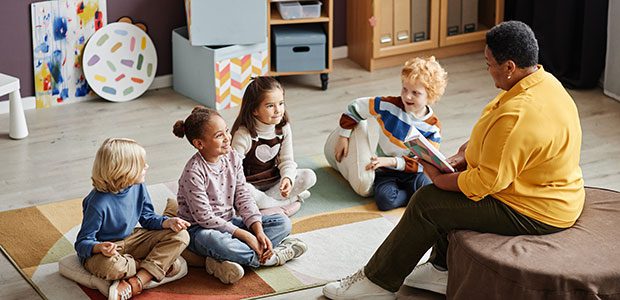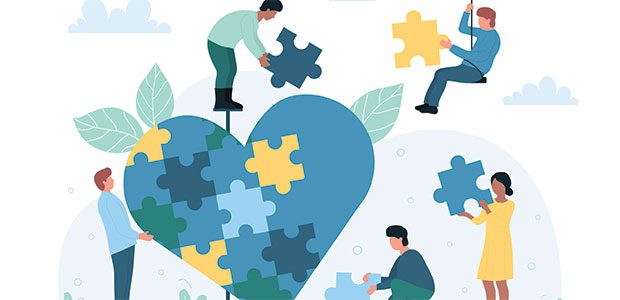New School Year
Drug Prevention & Internet Safety
By Officer Tim Mitten, Community Action Officer
Black Mountain Precinct, Phoenix Police Department
The new school year brings on many changes for both parents and students. It’s a time for many students to meet new friends and teachers, learn new school rules and procedures or make a jump into a completely new school or age group. For parents, it could be learning about a new school as well, maybe a new neighborhood or new procedures but mostly parents will see their child growing up and the challenges that brings with it, whether it’s moving from pre K to K, elementary school to middle school, high school and even college. Our children today face many things we did not have to as kids, many which send parents into shock.
I am a firm believer in parents being educated about what is potentially out there as a threat to your child, not to scare or bring concern over every person they see, but common sense education about things you may not know about. This article is not a parenting “how to” but some prevention training in a couple areas we in law enforcement feel are serious enough to educate parents about. This information is brief and I ask you to go further in your research and education.
Drug Prevention
First item of discussion is going to be drug prevention. This needs to start early and is not necessarily about illegal drugs but includes legal substances like alcohol and prescription drugs which are readily available for kids from their own homes. As law enforcement officers, we see this devastation on a daily basis, from the impact on neighborhoods in the form of thefts and burglaries, increased officer safety issues and the destruction of a person’s life from drug use, whether it is addiction, incarceration or even death. Through partnerships with schools, parents, neighborhoods, community organizations, faith based groups and many others, law enforcement can help in trying to educate as many people as possible on the dangers of drug use. Recent statistics show how prevalent substance abuse is among our children and that through some education and parental involvement, the use of drugs can be reduced. In Arizona, alcohol is the most common substance abused followed by cigarettes and marijuana. Alcohol kills 6 ½ times more teens than all other illicit drugs combined and 13.6 years is the average age AZ kids report first using marijuana. 40% of those who started drinking at 13 or younger developed alcohol dependence later in life and 10% of teens who began drinking after 17 developed dependence. Teens that drink are 50 times more likely to use cocaine than those who don’t drink and 63% of youth say they initially got the alcohol from their own or a friend’s house. Teens whose parents talk to them on a regular basis about the dangers of drug use are 42% less likely to use drugs than parents who don’t talk to their kids.
A question I get asked many times is “When should I start talking to my kids about drugs?” and the best answer is as early as possible. Now you do not need to tell your kindergartener or early elementary school kids everything about all drugs but start by introducing them to the dangers of poisonous and harmful substances found in most homes, like bleach, cleaners etc. By the 3rd grade, children should know that medicine, poisons, food and illegal drugs differ and that medicines given by a doctor or other responsible adult can help with sickness but can be harmful if used improperly and that they should stay away from any unknown substance.
Pre teens is a critical age for children to begin learning about the dangers of drug use since they may be exposed to it on TV or on the internet through shows, celebrity news, or other events in society. They are able to be told facts about drugs, their impact on the body and the results and dangers of its use, whether they are illegal drugs or medicines taken in excess. Their friends are also important at this age and peer pressure is strong so being an involved and educated parent is very important. This informed and anti drug attitude is very important for your child to have prior to entering middle and high school. Do not be afraid to discuss this issue, kids are very in tune to their parents attitudes about topics so do not ignore or rely on someone else to teach your children. Make sure the children can separate the myths from the realities of drug use and make sure to give positive reinforcement to them for good behavior and thinking.
Middle school and high school are the battleground. This is the most critical part of drug prevention since they will be pressured from peers, exposed in the media and movies to drug use and exposed more than ever before. Their decision making processes and anti drug attitudes will be challenged and they must make good decisions at this point. Try and arrange to have your kids looked out after school; kids left alone are susceptible to pressure. I know it is not easy to do that sometimes, but if they are left alone, make sure they feel your presence through giving them a schedule, limit their behavior, enforce rules, assign chores and check in constantly. Get to know your kids friends parents, exchange addresses and phone numbers and make sure the parents know your stance on alcohol and drug use. Discuss with your teens easy ways for them to vacate from a place where drugs are being used, and make sure they know it is okay for them to call you at anytime of the day or night to help get them out. Make sure curfews are set and enforced.
Adolescence is a tough time for children as they change physically and emotionally and even though they may seem unreceptive to parents, they do need parental support, involvement and guidance. They may not tell you or thank you but they do appreciate it. They are smart enough now to know the dangers of drug use, have probably seen some friends use drugs and maybe even seen the tragic consequences but constant education and enforcement of the anti drug message must continue. You can now talk more deeply about the effects of alcohol, smoking, drugs and other substance and its long term effects on their bodies and potentially to the health of their own future children. Keeping them active and involved in things they are interested in, (whether you like the sport or activity or not is irrelevant) they like it and support for this activity helps keep their self esteem and involved allows less time for bad decisions. It is vitally important that parents encourage teens for the good things they do and give kudos for the positive decisions they make. They may not respond but knowing you appreciate their good decisions is motivating to teens and will help keep their self esteem up.
Some things you should educate yourself about on the different types of drugs are “black tar heroin”, “spice”, “bath salts”, “molly”, prescription drugs like oxycontin, xanax, percocet, hydro marijuana, ecstasy, GHB, and many others are things parents should know about besides the common illegal drugs most hear about like meth, crack, LSD or cocaine. Educate yourself as to the signs and symptoms of drug use and where to go to get help if someone needs it. Some websites to get more information on drug use, trends, etc are phoenix.gov/police, maricopacountyattorney.org, safekidsaz.org, safeteensaz.org, are just a couple but if you do an Internet search using any of the drug types listed above you will be able to be linked to many sites that can provide information.
Internet Safety
Second area I want to discuss is Internet safety and cyber bullying. The Internet is a good tool, providing us access to a wealth of knowledge, keeping us in touch with family and friends, online shopping and much more. It is also a very dangerous place for our children who can be exposed to sexual predators and bullying. The problem is serious; a study found that 71% of teens ages 13-17 reported receiving online messages from someone they did not know, 40% reported that they reply and chat with that person and only 18% of those would tell an adult. 45% of teen’s report that they have been asked personal information from someone they don’t know, 30% considered meeting someone they have chatted with online and 14% have actually had an encounter.
Online predators target anybody, using information gathered from online chat rooms, blogs or social networking sites. They will pose younger than they are to gain trust, provide a sympathetic ear and offer praise, gifts and other things that the teens desire. The predator’s ultimate goal is to get a face to face meeting, avoiding all contact with parents since a proactive parent is a shield to predators. Cyberbullies use chat rooms, instant messaging, texts, social networking sites with messages and sometimes video and pictures to embarrass, threaten or intimidate a child. This technology allows the bully to spread gossip or lies; distribute embarrassing pictures or videos to a wide audience while remaining anonymous. It may start out as a joke but once it is launched into the cyberspace of the Internet it has serious and even tragic consequences.
There are some warning signs that parents can look for; the child withdraws from family and friends, isolating themselves and spending more and more time online. The child may hide or turn off the screen when a parent enters the room, you find pornography on the computer and your phone or their phone has calls to unknown numbers. In bullying situations, parents should look for children avoiding school, being withdrawn or a sudden interest or avoidance of the computer. Many children do not report to their parent’s difficult online situations out of fear of being embarrassed or thinking they did something wrong.
There are several things that parents can do to watch out for their children’s online activity and to safeguard them. The first and foremost thing is to talk openly to your child and be available to answer questions they may have and let them know that they can feel safe coming to you with an online problem, whether it be unwanted contact from an unknown person or harassing messages from a known source. Let them know the Internet is full of people that pretend to be anyone and that there are people out there with bad intentions. Place the computer in an open area in the home so that parents can monitor the child’s online activity. Use a filtering software, web browser control, key stroke software and monitor the Internet history. There are several free and pay software programs out there that can help parents watch the child’s activity, many run in the background and are never able to be seen by the user. Parents should become educated about computers, the Internet, social media, online language, cell phone capabilities and cell phone usage plans. Get involved in their online life, ask questions, set reasonable expectations and boundaries and be supportive but if they do something inappropriate, punish them in an appropriate and manner equal to the action.
If your child becomes a cyberbully victim from a fellow student or former student, inform the school and if the school has one, the School Resource Officer. You should also save any messages in case you need the proof later, you should change your child’s email and online accounts, contact the web site or Internet Service Provider for assistance in removing the offending pictures, videos or messages. If needed, contact the police department if there are threats or harassment and in some cases get an injunction from a court preventing contact.
There is a lot of information out there on this subject and most of what I teach on this subject is gathered from the Arizona Attorney Generals Office, (www.azag.gov), Arizona Internet Crimes Against Children Task Force, (www.azicac.org) and ChildhelpUSA (www.childhelpusa.org). Links to these and other websites can also be found at www.phoenix.gov/police.
I hope that this information will help you get started in educating yourself and help protect your children. Our world can be a dangerous place but with education and prevention, you can eliminate many potential problems that may occur. These topics are sometimes never even given a thought by many people as they feel they are insulated by their location in a city, unfortunately that is not the case in our world.
If anyone has any questions about this or any other topic, please feel free to call me at 602-495-5238 or by email at tim.mitten@phoenix.gov. Thank you for all that everyone does in partnering with us to improve your neighborhood and to improve the quality of life in the City of Phoenix.








